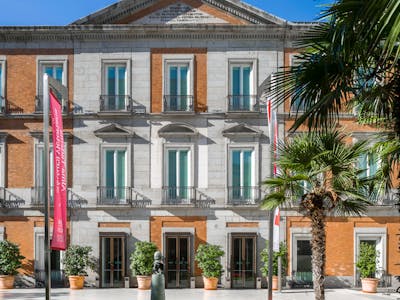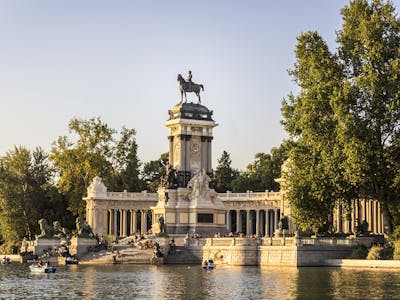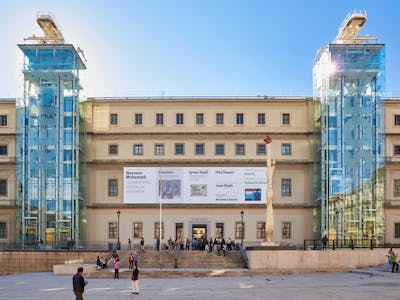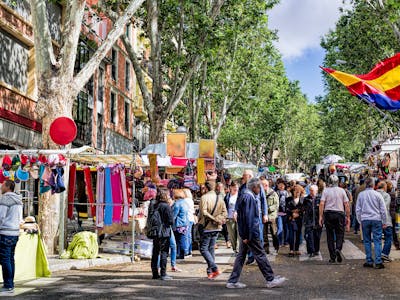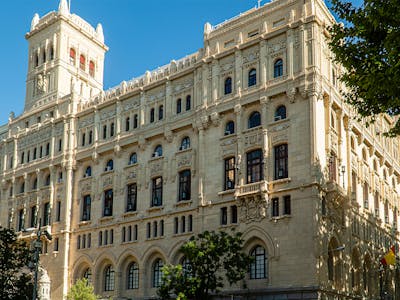The Prado Museum, officially known as the Museo Nacional del Prado, is a must-visit spot in Madrid. It boasts the largest collection of Spanish art along with Renaissance and Baroque masterpieces. Artists like Francisco Goya, El Greco, Hieronymus Bosch, Fra Angelico, Diego Velázquez, Raphael, and Titian have their works showcased here, making it a top attraction in the city. To make the most of your visit, it’s crucial to plan ahead regarding timings, seasons, crowd avoidance strategies, and transportation options. Let’s dive into the essential details you need to know before visiting the Prado Museum in Madrid.
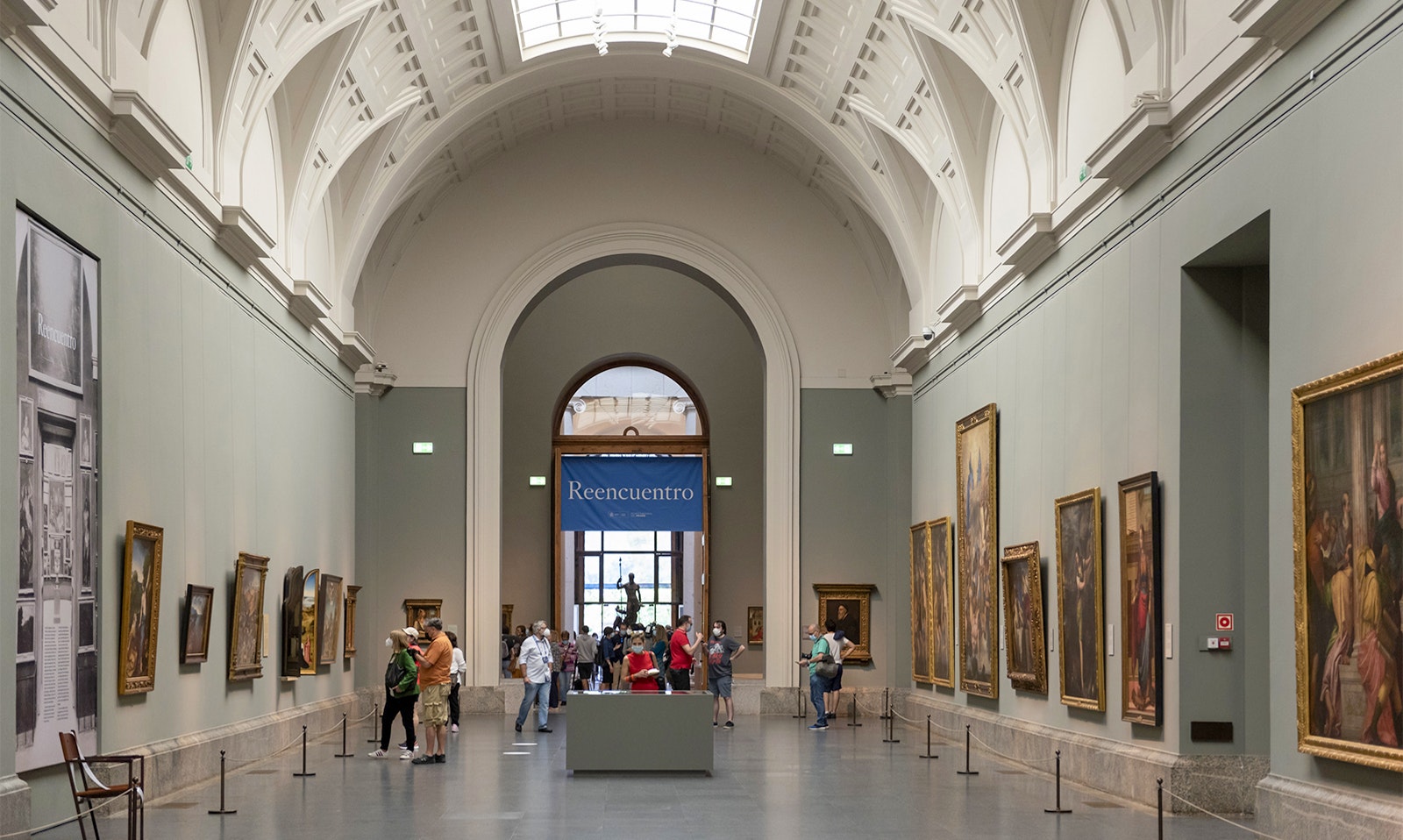
Before you visit the Prado Museum
The Prado Museum in Madrid is ideal for art enthusiasts, history buffs, and culture seekers interested in Spanish and European art. Families can enjoy the museum, especially with older children interested in art history. However, younger children may find it less engaging compared to interactive attractions. Those who appreciate Renaissance, Baroque, and Spanish masterpieces will absolutely love the Prado Museum experience.
Best time to visit Prado Museum
For the best experience at the Prado Museum, aim for a weekday visit. The museum opens at 10am, so arriving shortly after that is ideal. Weekdays tend to be less crowded, giving you ample time to explore the paintings and artworks at your own pace. You can even extend your visit without feeling rushed.
On weekends, expect larger crowds that can detract from your experience. Many visitors will be exploring the same highlights as you, which can lead to longer wait times and less space to enjoy the exhibits comfortably.
Consider visiting the Prado Museum during Spring or Autumn for pleasant weather. These seasons offer plenty of sunshine, mild rains, and comfortable temperatures. Autumn, spanning from September to November, is also a good time.
Visiting during winter may see fewer crowds as well (December to February) as temperatures drop below freezing in Madrid. While it's not the best time for a museum visit, you may find discounted rates at hotels and restaurants during this period.
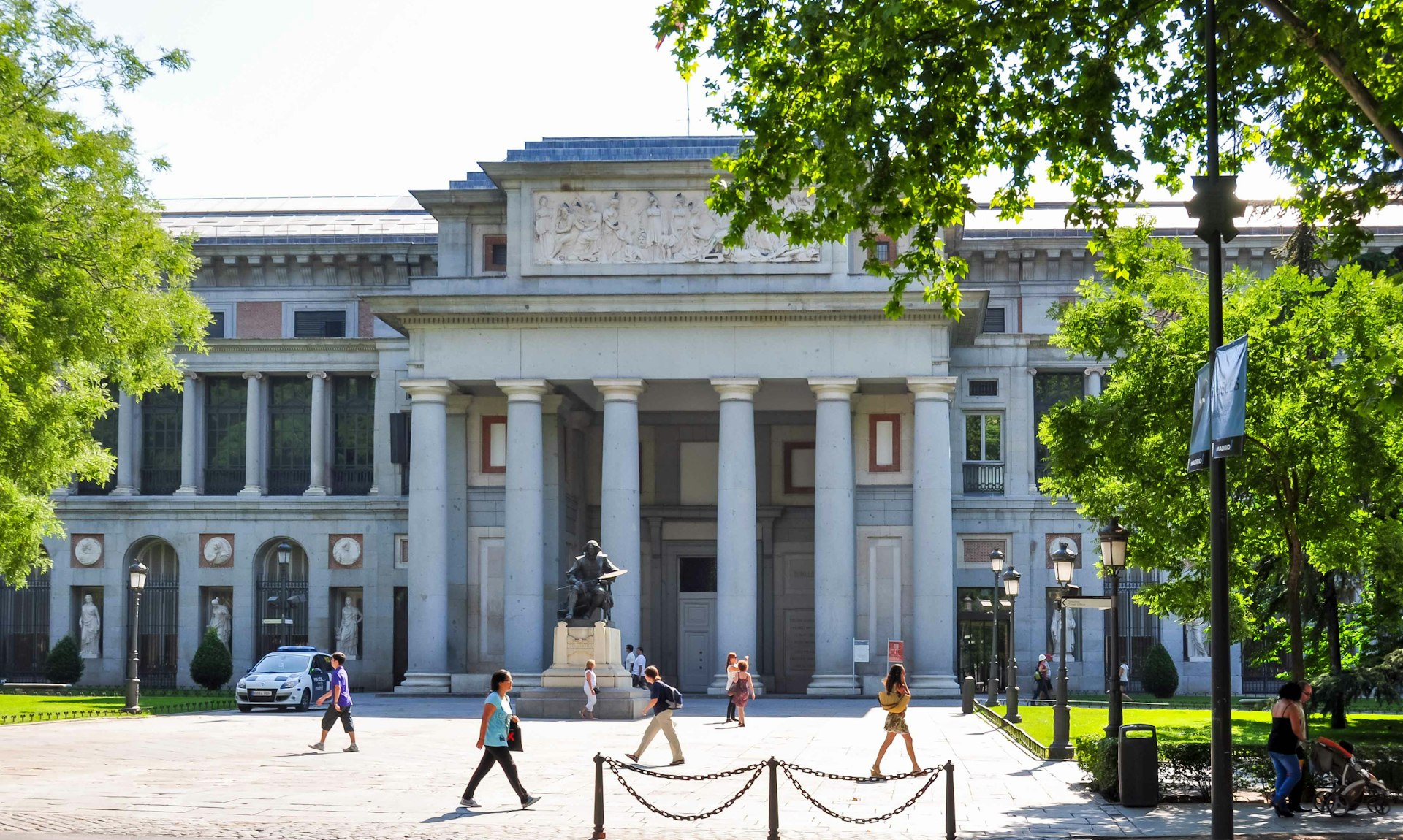
Tickets to Prado Museum
When planning your visit to the Prado Museum, consider the different ticket options available. You can opt for standard entry tickets, which allow you to explore the museum independently at your own pace. Alternatively, guided tours offer a deeper understanding of the artworks on display, enhancing your overall experience. We highly recommend a guided tour for a more fulfilling visit.
Additionally, you have the option to combine your Prado Museum experience with visits to other attractions such as the Royal Palace of Madrid, Thyssen-Bornemisza Museum, Reina Sofia Museum, El Retiro Park, and more. This can add variety and richness to your trip, allowing you to explore multiple facets of Madrid's cultural scene.
Prado Museum Opening hours
- Monday to Saturday: 10am to 8pm
- Sundays and Holidays: 10am to 7pm
- Last entry allowed 30 minutes before closing, which means 7:30pm from Monday to Saturday and 6:30pm on Sundays and holidays.
- The museum is closed on 1 January, 1 May, and 25 December. Additionally, it operates with reduced hours on 6 January, 24 December, and 31 December.
- Keep in mind that you can take advantage of the Prado Museum’s free access hours to visit for free. Visit between 6pm - 8pm from Monday to Saturday, and 5pm - 7pm on Sundays and holidays to enjoy complimentary access.
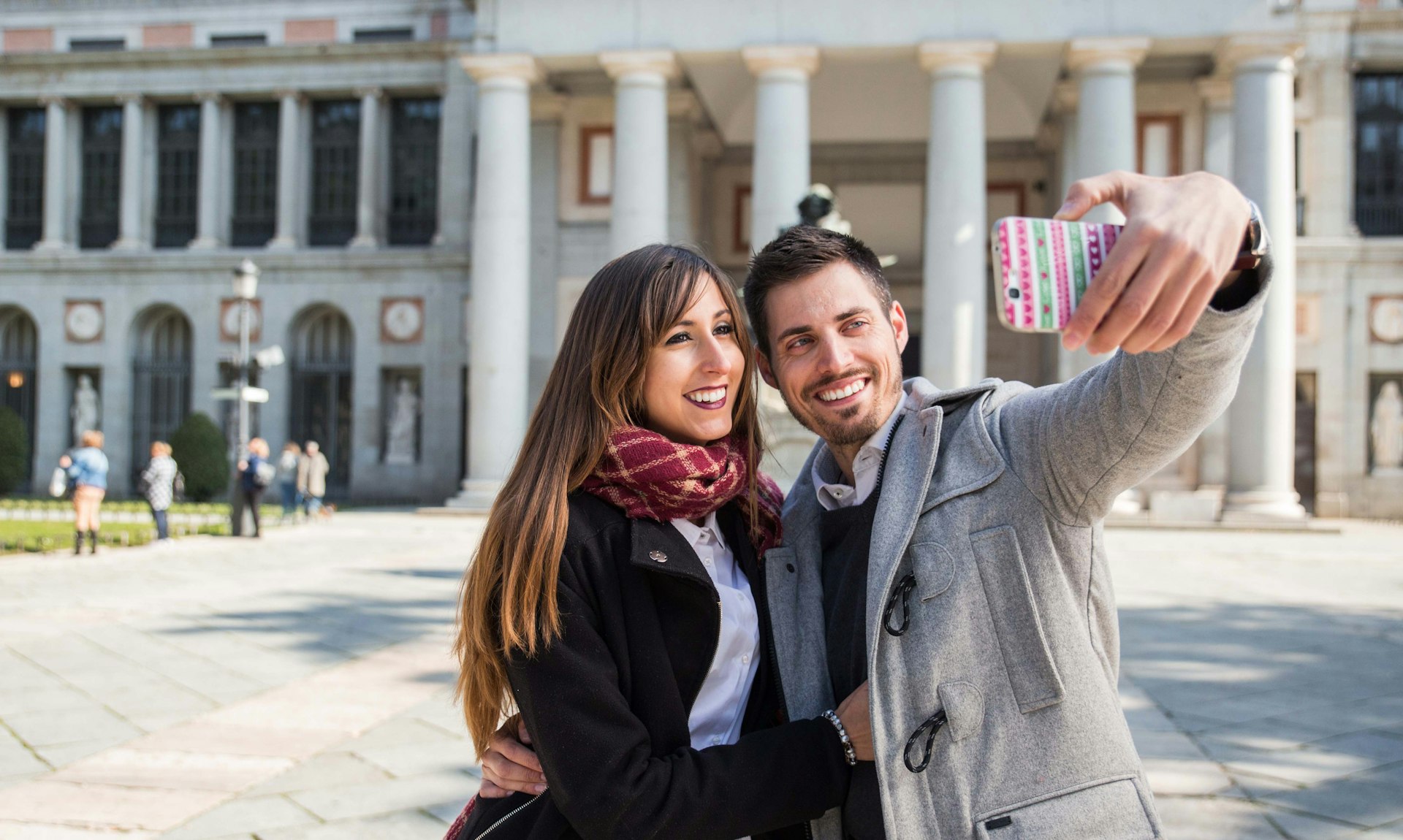
Tips for visiting Prado Museum
- Buy tickets online: Save time and money by purchasing your Prado Museum tickets online. Skip-the-line tickets are especially recommended to avoid the average 1-hour ticket lines.
- No photography: Remember, photography is strictly prohibited inside the museum. Respect this rule and refrain from taking pictures.
- Visit the souvenir shop: Don't forget to check out the Prado Museum souvenir shop on your way out. They offer a fantastic collection of prints, books, and other collectibles.
- Consider the Paseo del Arte: If you plan to visit the Prado, Thyssen, and Reina Sofia museums (Madrid’s Golden Triangle), consider getting the Paseo del Arte pass. This pass is valid for a year and saves you about €7 compared to buying individual full-price tickets. Note that these are standard entry tickets and not guided tours.
- Payment mode: Payment inside the Prado Museum is preferably done using ATM cards.
- Arrive on time: When visiting, keep in mind that your tickets may be assigned a specific time slot (especially for guided tours), so aim to arrive at the museum 10 to 20 minutes early to avoid any delays.
Getting to Prado Museum
🚌 By Bus:
Closest Stop: Museo Del Prado - Jardín Botánico
There are two bus options from anywhere in Madrid to the Prado Museum. Buses E1, N2, or N3 stop at Cibeles station, a seven-minute walk from the museum. You can also take lines 9, 10, 14, 19, 27, 34, 37, or 45, which stop at Museo Del Prado - Jardín Botánico, a short walk from the museum.
🚗 By Private Car:
Parking location: Parking Las Cortes, Parking Atocha 70, or Parking ok rent car.
While the museum is accessible by car, driving isn't recommended due to Madrid's heavy traffic. If driving, take C. de la Cruz from the city center. Expect to reach the museum in under 15 minutes, but note that parking isn't available at the museum itself.
🚆 By Metro:
Closest station: Retiro station
To reach the Prado Museum, you can take Line 2 and get off at Retiro station or Line 1 to Estacio Del Arte station. Alternatively, Line 1 (Blue) and Line 2 (Red) also stop at Atocha and Banco de Espana stations, respectively, which are close to the museum.
🚕 By Taxi:
Taxis are available throughout the city and can take you directly to the Prado Museum. Keep in mind that this option may be more expensive compared to public transportation.
Amenities and accessibility
- Lifts: The museum has lifts to access multiple levels, ensuring convenience for all visitors.
- Audio Guides: Available in various languages, audio guides offer insightful information about the museum's attractions.
- Library: Explore the rich library at Prado Museum, offering detailed insights into artists, movements, and cultures.
- Cafeteria: Enjoy refreshments at the museum's cafeteria during your visit.
- Wi-Fi: Stay connected with free Wi-Fi available throughout the museum.
- Gift Shop: Commemorate your visit with a souvenir from the on-site gift shop.
- Wheelchair accessibility: Prado Museum is designed to accommodate all visitors. It is wheelchair accessible, with lifts available for wheelchair users. The wheelchair entrance, Puerta de los Jeronimos, is located at the back of the museum, facing the western side.
- Luggage: You can deposit backpacks, suitcases, and other luggage in the cloakroom during your visit to Prado Museum.
What to see at Prado Museum
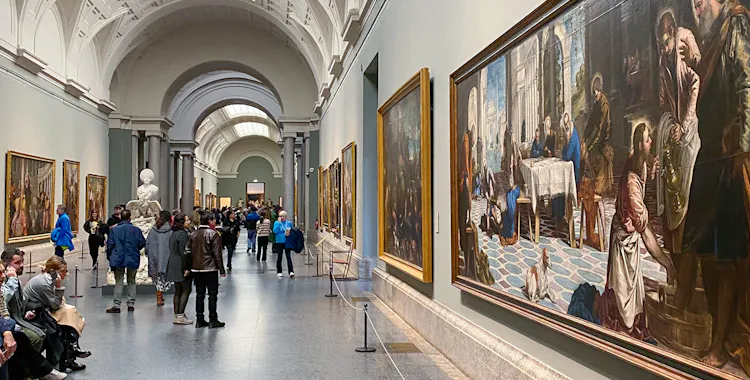
This artwork showcases St. Bernard in a moment of divine connection, expertly portrayed by Francisco Ribalta. The saint's ecstatic vision is captured with precision, depicting him as a thin man with deep eyes and prominent cheekbones. Holding Christ in his arms, St. Bernard's expression reflects a blend of joy and spiritual fulfillment. Ribalta's mastery in controlling the composition and lighting brings a tangible quality to the figures, making the religious experience feel vivid yet extraordinary.
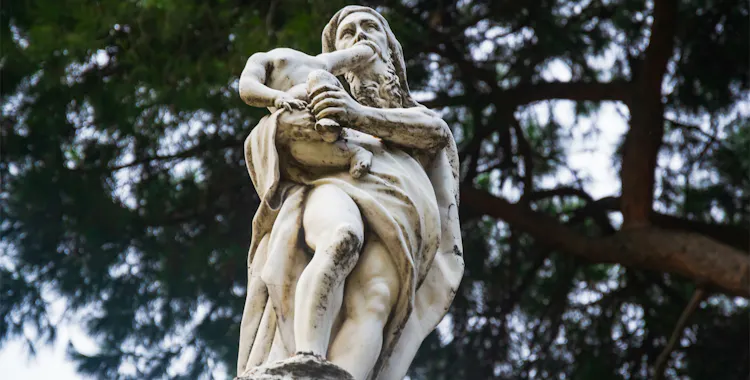
Francisco Goya's "Saturn Devouring His Son" is a striking depiction based on a Greek myth where Saturn consumes one of his newborn sons out of fear. Originally painted on a wall at Goya's home, it later became a renowned piece at the Prado Museum. The painting's dark and unsettling nature reflects Goya's Romantic style, showcasing his ability to evoke intense emotions and narratives in his work.
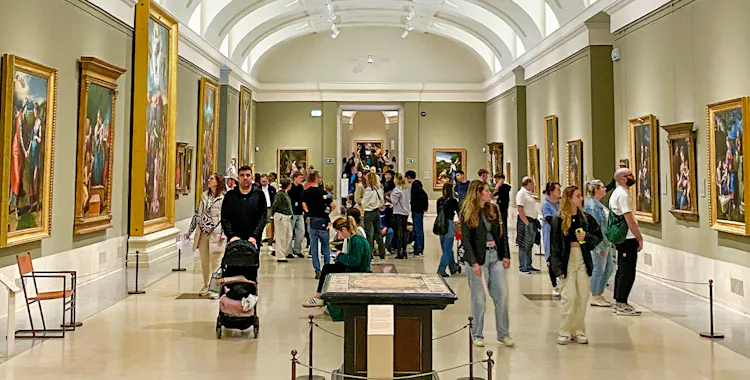
Completed during Goya's tenure as First Chamber Painter, this painting portrays King Carlos IV's royal family. The artist's skill in character depiction is evident, with each figure distinctively portrayed. The nuanced expressions and interactions among the family members highlight Goya's talent in capturing human emotions. Displayed at the Royal Palace before finding a place in the Prado Museum, this artwork remains a testament to Goya's artistic prowess.
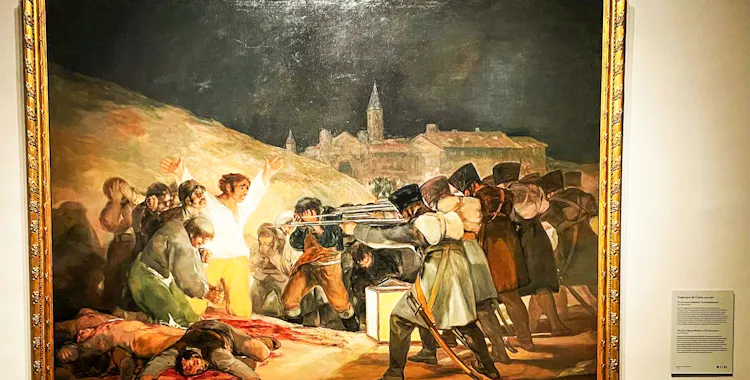
Considered a revolutionary piece, "The Third of May 1808" depicts the brutal realities of war, a departure from romanticized war depictions of the past. Commissioned to honor Spain's resistance during the Napoleonic Wars, this painting captures the stark horror and human suffering of conflict. Its counterpart, "The Second of May 1808," is also housed in the Prado Museum, collectively showcasing Goya's impactful commentary on historical events.
Nearby attractions

